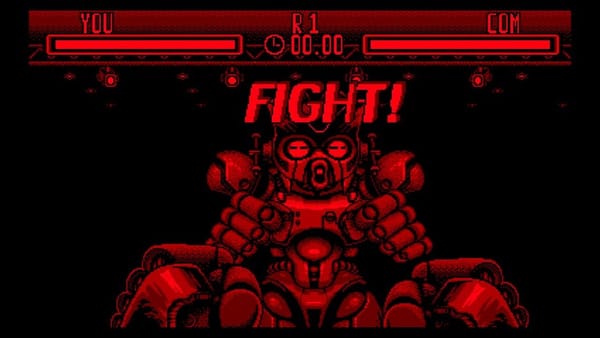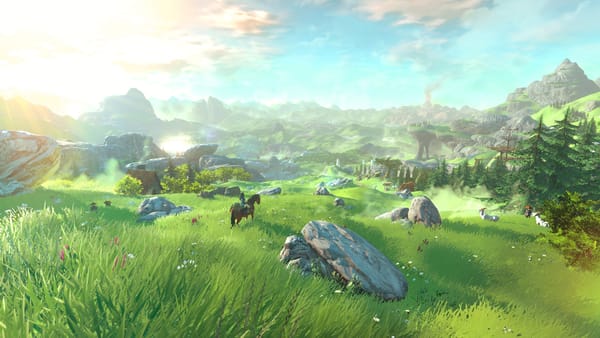#31: There to be broken
Hello! It feels like a lifetime since the last Hit Points, probably because I’ve been through the mill a bit, which I hope goes some way to explaining the lack of an edition on Monday. Turns out that when a stomach bug meets a heatwave, bad things happen. After two days in bed and two more on the sofa, nine pounds (!) lighter and with my head slowly putting itself back together (I know what you’re thinking, I thought the same and it was negative, fret not) it is time we thought and talked about videogames once more.
Before illness hit I’d been having a grand old time with Streets Of Rage 4, specifically the Mr X Nightmare DLC that launched late last week. It is, on the surface, a fairly standard, even modest, suite of post-launch #content: a handful of new playable characters, extra moves for the existing cast, and a couple of new modes. I wasn’t expecting much from it beyond a reason to return to a very good game, which of course was reason enough. Then I somehow lost an entire afternoon to the new Survival mode.
It drops you into a series of randomly generated single-room stages packed with enemies and hazards — exploding barrels, wrecking balls, flamethrowers, electric fences — then tasks you with completing as many stages as you can in a single life. Standard stuff, you’d think. Yet there’s a spark of magic at the end of each stage, when you’re given a selection of perks to choose from. Some are standard stat buffs: 15% more walk speed, 10% more defence, and so on. Others deal in risk and reward, doubling the damage both received and dealt, or increasing all your stats but removing your jump.
But the real treasures — the ones that made a happy afternoon melt away in an instant — are the ones that break the game’s ruleset in two. The elemental effects, applied to special moves and combo enders, whose AOE properties set entire waves of enemies on fire; the double-jump that lets you bait and befuddle opponents who’ve been coded on the understanding that, when you jump, you must land. Even better, the game will offer you a perk you’ve already got, and if you take it, it will increase its power. The toxic pool your special leaves lingers a while longer. The fire blast off your heavy attack does even more damage. The double jump becomes a triple, and then a quadruple. I spent most of one run completely off the top of the screen, only coming back down to earth to launch a fresh batch of enemies up into the rafters. I, too, was briefly in heaven.
This is perfect DLC making, I think. Not only in its structure — an endlessly replayable challenge mode is far better suited to this sort of game than, say, another handful of story missions; I imagine it was easier on the developers this way too — but in its execution, and specifically in its willingness to break its own rules. It has the air of a primary-school teacher unlocking the toy cupboard on the last day before the summer holidays: we have nothing left to teach you, the rules don’t matter anymore, go have fun.
It takes confidence, I think, to do something like this, and I wonder if that’s why we don’t see it more often. I don’t always need another 100 guns, another 20 hours of story and a whole new island to explore — just an excuse to return to a game I loved, that allows me to see and play it in a subtly, yet significantly different way. If I can spend half of it offscreen doing extravagant air-combos on clusters of street punks, so much the better.
MORE!
Oh heavens, quite a lot has happened. I’ll try to be brief!
- Kotaku has made a few errors of judgement lately but there’s no faulting this investigation into Ubisoft’s deeply troubled Skull & Bones, a game I first played at E3 170 years ago but has still, its publisher says, only recently left alpha. The real story here, I think, is about the perils of multinational companies taking local government grants. You suspect Ubi would have taken the hint and cancelled Skull & Bones yonks ago, or at least moved development to one of its more experienced studios. But its agreements with the Singapore authorities give it no option but to persist.
- Netflix has formally confirmed its move into games. I wondered last week how it could possibly offer a gaming subscription across all the platforms on which Netflix exists, and now we have our answer: it won’t, at least at first. “Initially, we’ll be primarily focused on games for mobile devices,” parps the firm’s investor report. Ho hum.
- The latest from Tencent’s magic chequebook: it’s spent $1.3 billion buying Sumo Group, and has also bought Battlerite maker Stunlock Studios. It is entirely reasonable to feel a bit queasy about all this Chinese-government-backed capital flowing into the game industry, but just about everyone I’ve spoken to who has taken this sort of investment has only good things to say about it — very supportive, very hands-off — so I’m really not sure what to think.
- A War Thunder player, so desperate to win a forum argument about the accuracy of an in-game tank, wilfully leaked classified UK defence information to prove a point. I love this so much.
- Nintendo’s top bods have been rewarded for the company’s stellar 2020 performance with bonus payments of around $2 million. Nintendo has also taken the highly unusual step of outright denying reports that a) the new OLED Switch will be more profitable, and b) it has another hardware revision in the works.
- Hollywood’s Neill Blomkamp is making a game, having signed on as chief visionary officer at Gunzilla Games. That’s an excellent job title, not least because it seems to implicitly preclude you from actually having to do anything.
- Peloton, the company that makes gamified exercise bikes for irritatingly upbeat hench people yes I am jealous, is getting into games.
- Good news! Former NOA president Reggie Fils-Aimé is writing a book. Bad news! It is somehow not called My Novel Is Ready. Part memoir and part — gah — business manual, it’s called Disrupting The Game: From The Bronx To The Top Of Nintendo, and is due next May. While I have my reservations about this — chiefly, how much of the real inside-baseball stuff Nintendo will actually let him discuss — I will take it regardless. The game industry is terribly underrepresented on bookstore shelves, particularly where autobiographies are concerned (obligatory shoutout for David Polfeldt’s excellent The Dream Architects). I’d probably ghostwrite one given the chance, thinking about it.
Right, I have to stop now because I think I’m about to pass out. Being sick and self-employed is fun! As ever, if you’ve enjoyed this, please do share it around — and if you’d consider a paying subscription, I’d appreciate it enormously. Catch you soon.





